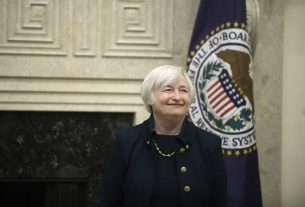Building up a nest egg for retirement is only one half of retirement planning. The other half consists of planning to safeguard and maintain that wealth well into the future. Business cycles have been a regular part of the economy for over a century. The booms and busts that occur with regularity are something that need to be taken into account when preparing for the future. Failing to do so could leave investors suffering significant losses in wealth during times when markets are weak. With every indication pointing to a currently weakening economy, investors need to start getting prepared for a possible crash and protect their assets while they still have time.
Weak Stock Market
Stock market volatility this year has been unprecedented. The number of multi-hundred-point losses and gains has garden variety investors on edge, wondering which way the market will really go. Right now the Dow Jones seems to be stuck in a range of 24,000-27,000 points, not able to break out higher but not weak enough yet to break lower. That could change very soon.
Recent stock market performance seems to have been influenced in large part by opinion rather than economic fundamentals. Comments by Fed Chairman Jay Powell on the Fed’s future conduct of monetary policy, and positive comments by President Trump about a trade deal with China sent the Dow up several hundred points. But negative comments by Trump and the recent arrest of Huawei’s CFO in Canada have investors worried again, sending markets dropping many hundreds of points.
A stock market that is subject to such wild swings just based on the words of policymakers is a sign that a market top has been reached. Investors are no longer looking at the strength of companies’ balance sheets, their production figures, or their investment in future business opportunities. Everything is about what the government intends to do, and it’s the expectations of action or a lack of action that are driving stock performance. That could leave investors badly burned if they remain overexposed to stocks.
Prospect of Trade War
The prospect of a trade war is perhaps what is most worrying to investors, as a conflict between the world’s two largest economies would slow international trade in a manner that hasn’t been seen in decades. With tariffs already starting to affect consumers in both countries in the form of price increases, the possibility of even higher tariffs in the future is concerning.
The continued escalation of the trade war has investors nervous, as there seems to be no end in sight. How will the trade war resolve? What is the goal of the US government in pushing China to the negotiating table? How long will this conflict last? There aren’t any good answers to any of those questions, which is why investors are so nervous.
Weak Industrial Sector
On top of all of this, the US industrial sector shows continuing signs of weakness. Both Ford and GM are halting production of numerous models of automobiles, with GM cutting thousands of workers from its workforce and shuttering numerous manufacturing plants. US factory orders have plummeted too, although it’s perhaps too early to tell why that’s happened. Still, all signs are pointing to a weakening business climate for corporations that will weigh on stock markets and on the overall economy.
What Investors Need to Do
Market crashes may seem, in hindsight, to be cataclysmic events on the order of Black Monday and Black Tuesday, but those who are paying attention notice the warning signs well in advance. The financial crisis in 2008 was much the same, with the first rumblings of weakness being seen in mid-2007 with Bear Stearns. From there it was over a year before the deepest depths of the crisis were reached, providing plenty of time for savvy investors to move their assets to safety.
Often it’s an unwillingness to believe that things could be getting bad that causes investors to leave their assets invested in stock markets too long, riding the downward trend into the pit of recession. The optimism that marks stock market tops is contagious, and investors keep thinking after every drop in the market that things will swing back upwards soon. By the time they finally come to grips with the reality that they’re in the middle of a bear market, the damage has been done and there is no way they can recover.
That’s why preparation for the crash has to come before the crash does. Markets are flashing a huge warning signal that 2019 and beyond will be tough years for investors. Many institutional investors have already pulled their money out of markets, fearing what is just around the corner. But protecting wealth ahead of a coming crash isn’t just something the pros can do.
Ordinary investors can take advantage of the protective properties of gold, which for centuries has acted as a safe haven in times of financial turmoil. Gold maintains its value when other assets don’t, which is why so many investors flee to it in times of crisis. And by investing in a gold IRA investors can roll over existing retirement assets from a 401(k) or IRA account tax-free, maintaining the same tax advantages of a traditional retirement account while simultaneously benefiting from gold’s protective status.
Don’t be one of those investors who hopes for the best and doesn’t prepare for the worst. If you don’t take the right steps today to safeguard your retirement assets, you could be in lots of trouble when the economy begins its downturn.
This article was originally posted on Goldco.





